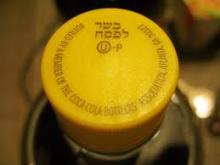Remember back in April, 1985 (yes, I know, you weren't even born then; bear with me) when the Coca-Cola company released "New Coke?" The "New" was partly a switch from using cane sugar as a sweetener to using high fructose corn syrup—the first change to the basic "secret recipe" since 1886. The idea, spurred by the popularity of Diet Coke, and of Pepsi, was to create a Coke that was closer to the taste of Diet Coke and Pepsi. There were cries of outrage, and eventually, even Coca-cola heard them, and in July of 1985 released "Classic Coke" which was, ostensibly a restoration of the "old" recipe (not the really old recipe that had cocaine . . . that stopped being produced in 1903). The truth is that Coca-Cola, well before the introduction of New Coke, had already started cutting the cane sugar with high fructose corn syrup. By the time New Coke was released, they'd already stopped using cane sugar.
One of the things that I miss about Los Angeles is that between small Mexican grocery stores and Jewish grocery stores it's pretty easy to find Mexican Coca-cola made with cane sugar instead of high fructose corn syrup. I'm not alone in my preference for Coke make with cane (or beet sugar) instead of high fructose corn syrup; there's a veritable cult of cane sugar Coca-cola fiends, enough to have our very own Facebook page, even, not to mention the huge popularity of the Mexican Coca-cola Facebook page.
If you're not near a Costco (they frequently have Mexican Coca-cola, by the case,
at a price that's less than 1.00 for a green-glass 12 ounce bottle) or a Mexican grocery store, there's still hope for you. There's kosher parve Coca-cola for Passover. The Coca-cola produced exclusively for Passover, is available only in the spring, during the season of Passover, and is marked by a yellow cap with either an OU-P, standing for the Orthodox Jewish Union, as certifying the beverage Kosher for Passover, or a white cap with CRC-P standing for the Chicago Rabbinical Council as Kosher for Passover. You will also probably see Parve somewhere on the bottle. Ashenazi Jews do not consume Kitniyot during Passover, which means hight fructose corn syrup is not acceptable, because it's made from corn, a grain which many Jews believe should be associated with the ban on leavening during Passover. You can also find it in specially marked cans; they'll say "Kosher for Passover" on the top, and the 12-pack box is clearly marked as well.I don't know about you, but next spring, I'm planning on scoring a case or three of Parve Coca-cola; I hear Costco is a good source.
